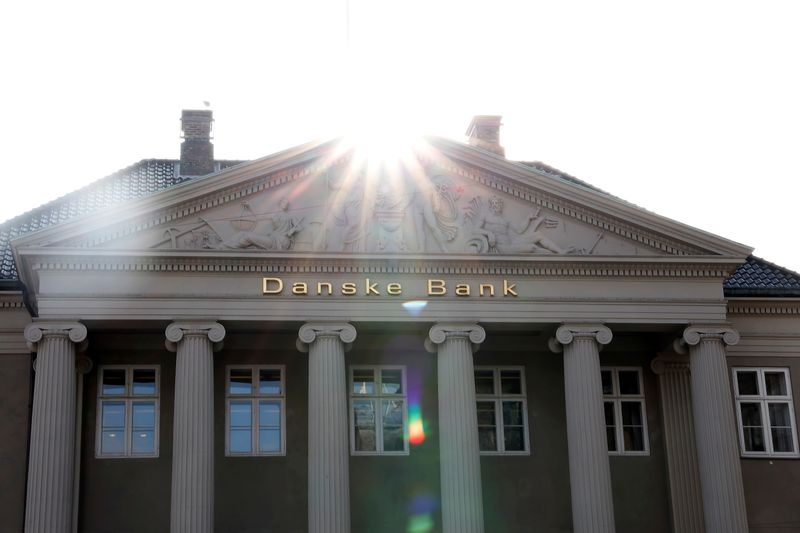By Sarah N. Lynch
WASHINGTON (Reuters) -Danske Bank pleaded guilty to bank fraud conspiracy on Tuesday and agreed to forfeit $2 billion as part of an agreement with the United States to settle a long-running investigation involving billions of dollars in illicit payments.
The accord with the Justice Department marks the first time the United States has taken action against Denmark's biggest bank in what has become one of the world's biggest money-laundering scandals.
It follows a lengthy investigation into Danske's conduct across multiple countries after the bank's now-shuttered Estonia branch allowed some 200 billion euros ($212 billion) in funds from high-risk clients in Russia and other countries to flow through the U.S. financial system.
“We have cooperated since we were approached by the authorities and accept the terms of the resolutions, Martin Blessing, Danske's Chairman of the Board of Directors, said in a statement. "We offer our unreserved apology and take full responsibility for the unacceptable failures and misconduct of the past, which have no place at Danske Bank today."
In addition to the criminal plea with the Justice Department, the bank also separately settled on Tuesday a parallel civil investigation with the U.S. Securities and Exchange Commission. It agreed to pay $413 million in penalties and disgorgement to the SEC, and it also settled with Danish authorities.
Of the $2 billion, the Justice Department said it will credit $850 million to resolve the SEC and Danish probes.
Although no individuals were charged on Tuesday, Kenneth Polite, the Assistant Attorney General for the Justice Department's Criminal Division, said the investigation is not yet over.
"Our investigation continues. It is ongoing. And the investigations of our international partners are ongoing," Polite told Reuters in a phone interview.
"Focusing on individual accountability is always a priority - not just for this case - but for all of our corporate resolutions."
In court filings, the bank admitted it defrauded U.S. banks between 2008 and 2016 by allowing high-risk non-resident customers from other countries, including Russia, through its Estonia branch.
Prosecutors said the bank's Estonia office attracted clients by telling them they could transfer large amounts of money with little oversight.
The Justice Department said the bank's employees also worked to hide the nature of the illicit transactions by using shell companies to obscure ownership of the funds.
In doing so, Russian and other high-risk clients were able to gain access to U.S. banks, which collectively processed $160 billion on their behalf.
The Justice Department said Danske Bank was aware of illicit transactions by at least February 2014, after they came to light through internal audits as well as from a whistleblower and through information from regulators.
The bank was also aware that its Estonian arm's anti-money laundering program was not up to its standards, prosecutors said.
The money-laundering scandal at Danske Bank has plagued the lender for about five years, with the bank saying in October it was setting aside $1.9 billion to resolve probes by the Justice Department, SEC and the Danish Special Crime Unit.
Danske Bank 's former CEO Thomas Borgen was also sued by investors over the scandal, but a Danish court cleared him of liability in November.
On Monday, a group of investors who lost the lawsuit appealed that decision.
Polite told Reuters that the case represents one of the top five largest financial institution resolutions the department has reached in the last decade.
But the size of the forfeiture relative to its market capitalization makes it "the largest resolution that we've had against a financial institution," he said.

The current market capitalization of Danske Bank is 110.45 billion Danish crowns, according to Refinitiv data, which amounts to $15.77 billion.
($1 = 7.0034 Danish crowns)